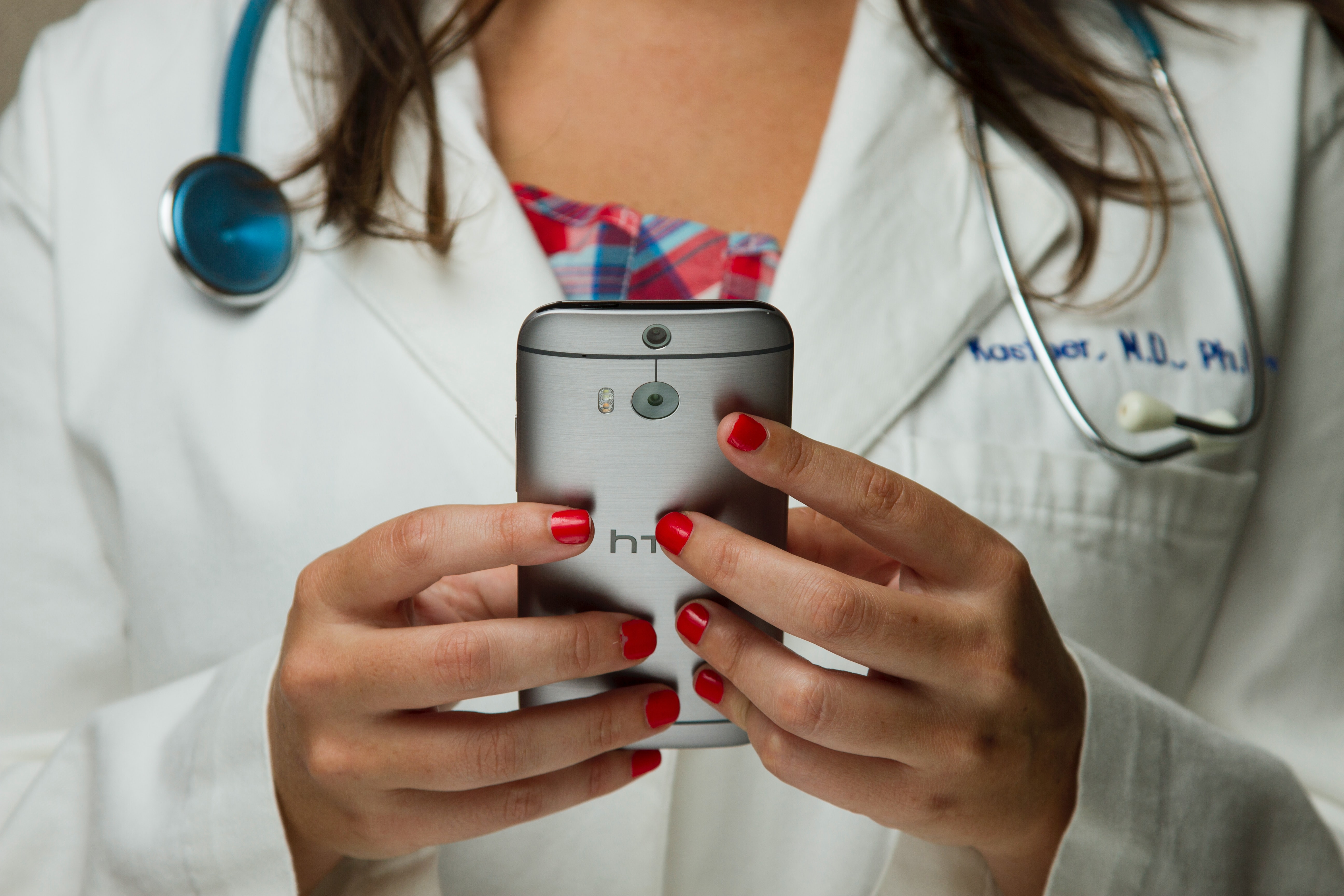The COVID-19 pandemic has thrown light to a trend that had gone largely unnoticed until now—a lack of medical experts on social media. Since the virus hit Western countries, citizens have turned to the Internet for solutions. But, with the rise of misinformation, most of them decided to put their trust in the few medical experts with an online presence, giving rise to a new figure—the healthcare influencer.

Influencers have flooded social media platforms since the advent of the Internet, going from spaces like Blogger in the 2000s to Tik Tok in 2020. Through pictures, videos, and listicles, they sold a lifestyle to their followers, sponsored by brands. The most generalized type of influencer has so far featured images of trips, clothes, and parties on social media, but this has shifted to include experts from other fields. Prominent video game players, journalists, gymnasts, and painters—among others—now share their knowledge or work online, with large followings.
The healthcare sector was no stranger to this, and it was soon packed with influencers sharing tips to stay fit and live longer. However, few had medical backgrounds, and much of the information was bogus, as noted by the MIT Technology Review. Gwyneth Paltrow’s company Goop offered this kind of healthcare advice, for example, saying at one time that underwire bras cause breast cancer. The claim, like many others, has been discredit by medical professionals, but Paltrow’s popularity and the company’s first-comer stance have ensured Goop’s message reaches thousands.
With the arrival of COVID-19, users doubled their efforts to look for healthcare information, making use of the recommendations found online. But many turned out to be fake news (read How Covid-19 is feeding into the fake news problem). Although traditional sources of information already offered accurate medical information, users were not looking for it.
Citizens’ lack of trust towards authorities was noted in 2016 when Oxford Dictionaries chose post-truth as the word of the year. The trend was a consequence of Brexit and Donald Trump’s success in the US presidential elections, which led citizens to mistrust traditional sources of authority, experts and elites, such as the European Union, the government and even the media. At the same time, outlets with dubious information, such as Breitbart, were becoming popular, and leaders in countries like the UK and the US were providing “alternative facts” instead of hardcore truths. Instead, users started depositing their trust in information shared by family and friends through social media platforms.
As a result, when the pandemic hit Western countries, users looked for online data on how to combat it, with many turning to influencers instead of media outlets or the government. Influencers represent the middle ground between our friend and authority. They are present on our social media timelines, which means we can trust them, and while they may be experts, they don’t necessarily represent intellectual elites.
There was a gap in social media that needed to be filled by doctors who were also savvy social media users. So, when a few medical professionals went online to explain the impact of the pandemic, they immediately became rockstars. Medical experts were trying to fight misinformation at a time when users did not know who to trust. Governments reacted slowly, fear spread like wildfire, and healthcare systems were collapsing, but hearing a doctor explaining how to deal with COVID-19 soothed our worries. Someone from the inside was telling us what to do.
Still, the spotlight carries its own risks, especially in a field such as medicine, in which an incorrect recommendation can have dreadful consequences. In Spain, the ER doctor Jesus Candel known online as Spiriman is one of such personalities. Candel went viral after publishing a video on his YouTube channel in mid-March, urging young people to get informed and not think only of themselves. Since then, he has been responding to users’ questions online, like many other healthcare professionals.
In the US, there are similar examples of healthcare influencers, with the most popular one being Doctor Mike—Mikhail Varshavski—who has over 5 million subscribers on his Youtube channel. Doctor Mike is a family doctor in New Jersey, who became an influencer long in 2015, before the pandemic. During this time, he has calmed his followers’ fears and explained the medical recommendations given by institutions such as the World Health Organization. He has also devoted his time to fact-check pandemic conspiracies.
However, their popularity can also be risky at times. As the quarantine continues, Spiriman has become more critical of the measures taken by the government, even encouraging people at one point to break the quarantine. His example shows that the line for healthcare influencers, between providing medical advice and sharing their own opinion on related matters, must be stricter than for other online personalities. Their opinion carries the weight of expertise, and, as such, users may follow it.
At a time of rapid changes, the impact of COVID-19 on the Internet will remain long after the virus recedes. Users will continue to deposit their trust—and more than now—on healthcare influencers, whose popularity will not shrink. Citizens may still not trust figures of authority, but they sure believe in peers—especially those who they judge to know more than themselves.


Great piece of information! Sooner or later, people had to realise about the importance of healthcare industries as without them, it would have been impossible for the governments to fight this pandemic.
https://www.solarpanelcostprice.com.au
Every time I read a post, I feel like I’m able to take a single, clear lesson away from it, which is why I think it’s so great.
Really I was thinking of the same thing and found it on the internet.
This article literally have my words. Well written 👍
You are absolutely right.
Thanks for providing such great content.
Great information, from which people will have a higher sense of health protection
This article literally have my words. Well written. Thanks you so much